August 28
C. Wright Mills
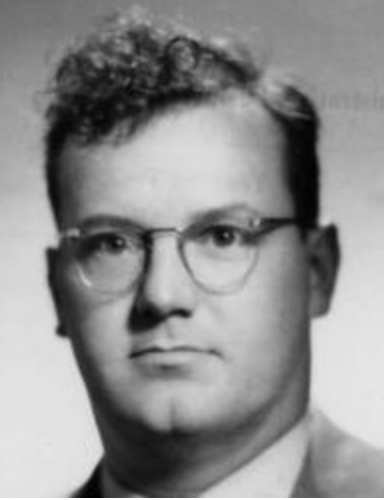
On this date in 1916, Charles Wright Mills was born in Waco, Texas. Mills grew up without friends, books or music and, at the behest of his insurance broker father, initially planned for a career in engineering. Enrolled at Texas Agricultural and Mechanical College in the mid-1930s, Mills frequently wrote for the student newspaper, often about his anger at upperclassmen taunting freshman.
When students criticized his writing for lacking “guts,” he wrote in response, “Just who are the men with guts? They are the men who have the ability and the brains to see this institution’s faults … the men who have the imagination and the intelligence to formulate their own codes; the men who have the courage and the stamina to live their own lives in spite of social pressure and isolation.”
These were less the words of an engineer and more the early musings of one of the 20th century’s great sociologists. After one year at Texas A & M, Mills transferred to the University of Texas-Austin, where he excelled in philosophy, sociology, cultural anthropology, economics and social psychology. At UT-Austin, Mills received a bachelor’s in sociology and a master’s in philosophy, while developing interest in the theories and writings of Karl Marx, Thorstein Veblen and John Dewey.
In 1939 he entered the doctoral program in sociology with a research fellowship at the University of Wisconsin. After completing his coursework in 1941, Mills joined the faculty at the University of Maryland, avoiding military service due to high blood pressure.
Mills involved himself in public affairs in Washington, D.C., and began writing for progressive magazines like The New Republic. In 1945 he joined Columbia University’s Bureau of Applied Social Research, where he attempted to combine his progressive political passions with empirical research. Mills wrote some of the most radical books of the 20th century, including New Men of Power (1948), White Collar (1951) and The Power Elite (1956), all published when the FBI and the attorney general were compiling lists of “subversives,” which put Mills in great personal and professional danger. Interested in the Cuban revolution under Fidel Castro, he visited Cuba in 1960.
Mills, who refused to identify with any political party, movement or religion, adamantly criticized what he called “cheerful robots,” or those who happily follow without questioning authority. He said, “If there is one safe prediction about religion in this society, it would seem to be that if tomorrow official spokesmen were to proclaim XYZism, next week 90 percent of religious declaration would be XYZist.” (“A Pagan Sermon to the Christian Clergy,” 1958.)
The Sociological Imagination (1959), Mills’ most lasting legacy, helped found the subfields of public and critical sociology. It called on sociologists to communicate with the general public instead of just one another and to connect people to public issues. At age 45 he suffered a fatal heart attack. (D. 1962)
"[A]re not all the television Christians in reality armchair atheists? In value and in reality they live without the God they profess; despite ten million Bibles sold each year, they are religiously illiterate."
"According to your belief [Christian clergy], my kind of man — secular, prideful, agnostic and all the rest of it — is among the damned. I’m on my own. You’ve got your God."
— Mills, "A Pagan Sermon to the Christian Clergy," remarks to the Board of Evangelical and Social Service, United Church of Canada (Feb. 27, 1958)
Bwambale Robert Musubaho
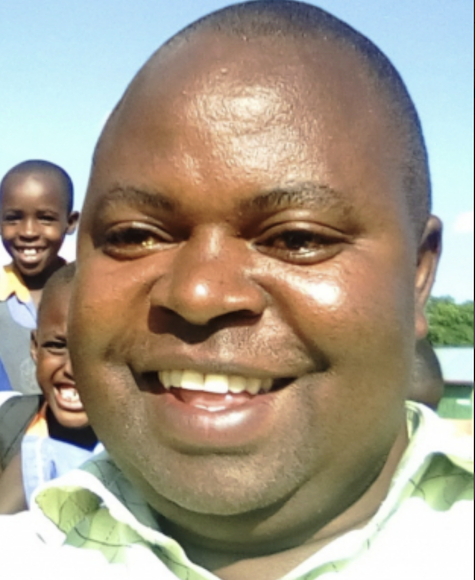
On this date in 1979, humanist activist and educator Bwambale Robert Musubaho was born in Kasese, Uganda. Orphaned at age 5 and baptized and confirmed in the Anglican Church, he was raised by his grandmother and worked during high school as a barber before receiving a scholarship to attend Kyambogo University in Kampala. He graduated in 1998 with a biology degree.
In a 2017 interview with Phil Zuckerman, Bwambale said he lost his religious faith in the early 2000s when he “started being skeptical about the natural world and things in it,” eventually embracing humanism. He’s the author of the book Orphans of Rwenzori: A Humanist Perspective.
In 2011 he founded the Kasese Humanist School for boys and girls ages 3-14. It welcomes children from all belief and nonbelief systems but is secular in nature and stresses reliance on the sciences and avoidance of “dogmas and indoctrinations which are prevalent in the majority of Ugandan communities. We embrace REASON and belief in things backed by empirical evidence, not myths, fairy tales and allegories.” The school has three very modest campuses and about 700 students.
In 2015, working with the Brighter Brains Institute in the U.S., Bwambale started what was said to be the world’s first atheist orphanage. BiZoHa Orphanage includes one of the humanist school’s campuses and a small acreage on which food crops are grown. An affiliated humanist center offers educational DVDs, documentary films and books and woman empowerment initiatives in tailoring, gardening and craft making.
Bwambale is married and has a son and daughter. He speaks English, Swahili and Luganda.
“I think humanism is within us and it's inborn, nobody under the sun is born with religion. I think religion is something that is imposed on humanity by people who have hidden agendas.”
— Bwambale interview with Phil Zuckerman, Psychology Today (March 10, 2017)
Johann Wolfgang von Goethe
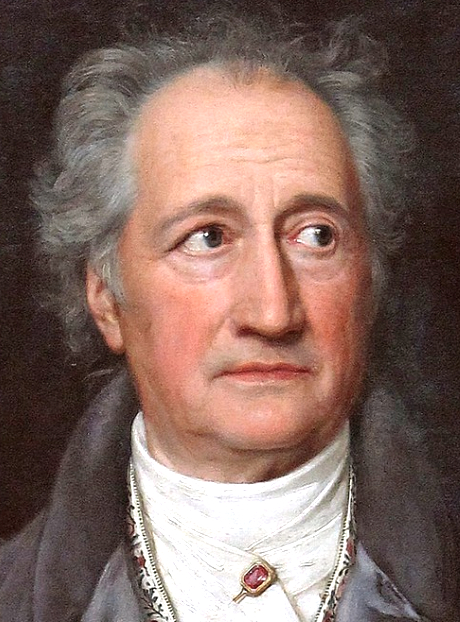
On this date in 1749, Germany’s most famous poet, Johann Wolfgang von Goethe, was born in Frankfurt am Main, to a comfortable bourgeois family. He began studying law at Leipzig University at the age of 16 and practiced law briefly before devoting most of his life to writing poetry, plays and novels. In 1773, Goethe wrote the powerful poem “Prometheus,” which urged human beings to believe in themselves more than in gods.
His first novel was The Sorrows of Young Werther (1774), a semi-autobiographical tragedy about a doomed love affair. A line from that novel: “We are so constituted that we believe the most incredible things: and, once they are engraved upon the memory, woe to him who would endeavor to erase them.” In his 1797 Hermann and Dorothea, Goethe observed: “The happy do not believe in miracles.” Goethe typified the Sturm und Drang romantic movement, celebrating the individual. The Grand Duke of Weimar appointed him an administrator in 1775, where, according to some historians, Goethe turned Weimar into “the Athens of Germany.”
Goethe was keenly interested in the natural sciences and in his studies discovered the human intermaxillary bone (also known as the Goethe bone, adjacent to the incisors). After a sojourn in Italy from 1786 to 1788 he returned to his art, starting a journal inspired by Christopher Marlowe‘s play “Faust,” Goethe wrote part 1 of his most famous play, published in 1808. Part 2 was published in 1832. From Part 1, Scene 9: “The church alone beyond all question / Has for ill-gotten gains the right digestion.”
Goethe’s religious beliefs were complicated and changed at various periods in his long life. He was raised Lutheran and was quite devout when young but grew to have problems with Christianity’s dogma, hierarchy and superstitious aspects. He revered Spinoza, whom Nietzsche often paired with Goethe. His later spiritual perspective incorporated pantheism (heavily influenced by Spinoza), humanism and elements of Western esotericism, as seen most vividly in part 2 of “Faust.”
“Goethe was a freethinker who believed that one could be inwardly Christian without following any of the Christian churches, many of whose central teachings he firmly opposed, sharply distinguishing between Christ and the tenets of Christian theology, and criticizing its history as a ‘mishmash of fallacy and violence,’ ” states the 1982 German publication Goethe’s Poems in Chronological Order.
He died at age 82 of apparent heart failure in Weimar. Of his five children, only a son, August, survived into adulthood. (D. 1832)
In the wilderness a holy man
To his surprise met a servant of Pan,
A goat-footed faun, who spoke with grace;
“Lord, pray for me and for my race,
That we in heaven find a place:
We thirst for God’s eternal bliss.”
The holy man made answer to this:
“How can I grant thy bold petition,
For thou canst hardly gain admission
In heaven yonder where angels salute:
For lo! thou hast a cloven foot.”
Undaunted the wild man made the plea
“Why should my hoof offensive be?
I’ve seen great numbers that went straight
With asses’ heads through heaven’s gate.”— Goethe poking fun at pietists claiming his cloven-hoofed paganism would bar him from heaven. "Goethe: With Special Consideration of His Philosophy" by Paul Carus (1915)
Bob Carter
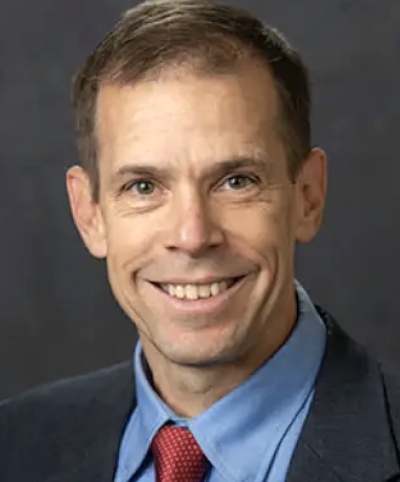
On this date in 1965, future state legislator Bob Carter was born in Great Falls, Montana, where he grew up working on area farms and ranches during high school and college. He was baptized Episcopalian and was raised in a Catholic household. After high school, he enrolled at the University of Montana, earned a B.S. in computer science with minors in math and media arts with an emphasis in accounting and worked in the Silicon Valley in software development and as chief information officer (I.T. manager) for several leasing and finance-related companies.
Carter and his wife Laurie then moved to Montana to raise a family. They have three sons — Nick, Max and Ben — and as licensed foster parents have cared for as many as seven children in their home, ranging in age from 4 to 16. “When we decided to have kids, I volunteered for the job as primary caregiver, choosing to be a stay-at-home dad while still volunteering for a multitude of nonprofit, childhood and education-related causes in the Missoula area,” Carter said on his campaign website.
“In college I had a Jewish friend who cast doubt on all of Christianity,” Carter said in an email shortly after being named FFRF Action Fund’s Secularist of the Week in November 2024. “Not long after that I concluded that maybe all religions were wrong. From a young age I was a fan of Charles Darwin and Richard Dawkins, and that broadened my perspective even further. I remember thinking, ‘If God is able to create an entire universe, and is credited with healing all kinds of sicknesses, cancers and tumors, why has she never healed an amputee? Does God not like amputees? Do amputees not pray hard enough to be healed?’ ”
He threw his hat in the legislative ring as a Democrat in red-state Montana in 2022 after serving four terms on the Missoula School Board and won a seat in the state House. He was reelected in 2024 by a margin of 22 points. Former president Donald Trump won Montana by 20 points in 2024.
On his campaign site, Carter lists nearly three dozen groups he supports, volunteers for or is active with in some capacity, including FFRF and the Missoula Area Secular Society. On Ballotpedia in 2022, he named women’s reproductive rights and public education as the issues he’s most passionate about and climate change as the biggest challenge facing Montana. “If I had to choose the one thing that I felt would be most important for the future of humanity, it would be the progressive, science-based education of our children.” (The Humanist, March 20, 2023)
Carter said in his email to FFRF that he knows and respects that religious beliefs are important to many people: “In fact, I volunteer to support of all kinds of beliefs like Native American ceremonies, churches, mosques and temples. That said, I am against indoctrinating children. I am a proponent (and product) of our public education system. I feel strongly that a child’s education needs to be secular and not based on whatever theology happens to be popular at the time. The knowledge, values and actions that we pass on to future generations need to be independent of any religious authority.”
“So many of my colleagues wear their religion on their sleeve and claim religion is what gives society its morals. I want them to know that here I am, an atheist and humanist, who does not believe in the supernatural. My question is: As a nonbeliever, where do I get my morals from? Maybe kindness and compassion are simply human traits just because they are the right thing to do.”
— Carter, answering why it's important to him to be open about his nonreligious identity. (The Humanist, March 20, 2023)
Jack Black
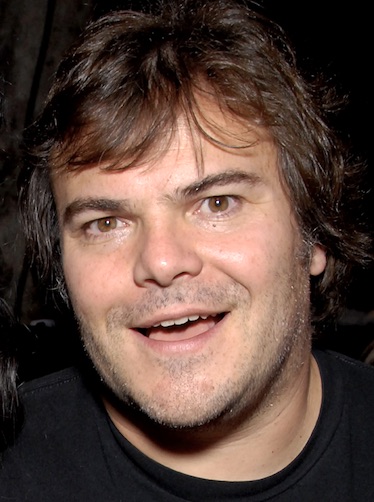
On this date in 1969, actor and musician Thomas Jacob “Jack” Black was born in Santa Monica, Calif., to Judith Love Cohen and Thomas Black, both aerospace engineers. His mother is of Jewish ancestry and his formerly Presbyterian father had converted to Judaism to marry her.
Black had a Jewish upbringing that included a bar mitzvah. “It was a celebration because I no longer had to go to Hebrew school, which is additional school,” he joked on the H3 Podcast hosted by Ethan Klein. “I got my bar mitzvah and then I bailed on the whole enterprise.” (The Jewish Chronicle, Aug. 8, 2023) “[W]hen I was a kid, I remember hearing that a bar mitzvah was like your birthday times 10. And it was not like that at all. I got socks. So I turned to atheism.” (The Guardian, April 18, 2013)
His parents divorced when he was 10 and he lived primarily with his father while frequently visiting his mother. Her engineering work on the abort-guidance system had been integral to the harrowing but safe return of Apollo 13 from the moon to Earth in 1970. He struggled in high school due to drugs and his unsettled home life but graduated from a private alternative school and enrolled in the University of California in Los Angeles, where he joined a theater troupe.
He started landing small roles on prime time TV, including “Life Goes On,” “Northern Exposure,” “Mr. Show,” “Picket Fences” and “The X-Files.” Minor roles in movies such as “Waterworld,” “The Cable Guy,” “Mars Attacks!” and “Dead Man Walking” followed. His breakout roles were in “High Fidelity” (2000) and “School of Rock” (2003), with the latter earning him a Golden Globe nomination for Best Actor in a Musical or Comedy.
In “Anchorman: The Legend of Ron Burgundy” (2004), he played a manic motorcyclist who punts Will Ferrell’s dog off a bridge. Before long, it was almost a matter of what movie didn’t the stocky, 5-foot-6 Black have a role in as an actor or as a musician in the “mock rock” duo Tenacious D with guitarist Kyle Gass. Tenacious D signed with Epic Records in 2000. According to IMDb as of 2025, Black has 357 credits as an actor and 876 as himself, along with about 100 more in various other capacities. He received a star on the Hollywood Walk of Fame in 2018.
In 2006 he eloped and married Tanya Haden, a cellist who was a triplet with two sisters. They have two sons, Samuel (b. 2006) and Thomas (b. 2008). Tanya’s father was jazz bassist and band leader Charlie Haden, an original member of the Ornette Coleman Quartet.
Black, who was 36 when Samuel was born, once told talk show host Conan O’Brien about enrolling his children in Hebrew school for a while. “I feel a little hypocritical ’cause I’m an atheist, you know, but it’s a really good school, and I am a Jew technically, I’m allowed to take my kids there. And my wife is, too, but also we have not been to synagogue for years.” (“Conan” on TBS, April 28, 2012)
Black garnered a second Golden Globe nomination in 2011 in the category Best Actor in a Comedy for his starring role in the black comedy “Bernie,” but there were also bombs along the way such as Worst Actor Golden Raspberries for “Borderlands” and “Dear Santa” in 2024.
Successes were much more common. He played a fictional version in 2015 of author R.L. Stine in “Goosebumps” and its 2018 sequel. He repeated the sequel success with “Jumanji: Welcome to the Jungle” (2017) and “Jumanji: The Next Level” (2019). Most recently he had a starring role in “A Minecraft Movie,” which brought in the second-highest gross at the box office early in 2025 and the second-highest video game film of all time.
Black launched his YouTube channel “Jablinski Games” in 2018 and within a week it had over 1 million subscribers. He created it as a way to further bond with his sons. He took part in July 2019 in a “Minecraft” stream to raise money for the National Alliance on Mental Illness in the wake of the drowning suicide of Desmond Daniel Amofah, known online as Etika. After two days of streaming, they raised $30,479. As of June 2023, Jablinski Games had 5.04 million subscribers.
PHOTO: Black in Los Angeles in 2011; photo © Glenn Francis, PacificProDigital.com under GNU Free Documentation License 1.2.
“I don’t have any real spirituality in my life — I’m kind of an atheist — but when music can take me to the highest heights, it’s almost like a spiritual feeling. It fills that void for me.”
— NPR "Fresh Air" (April 23, 2012)
